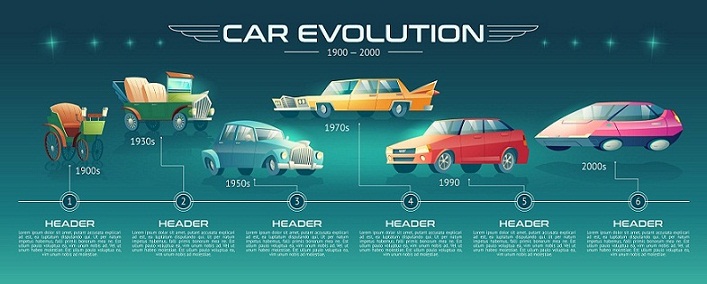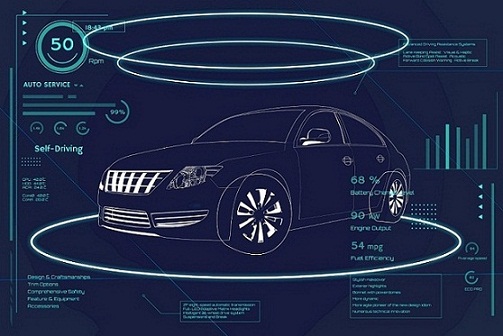Introduction
In the dynamic world of automobiles, understanding the dimensions of a car goes beyond mere aesthetics – it’s a fundamental aspect that influences performance, practicality, and even safety. In this exploration, we delve into the specifics of car dimensions, with a spotlight on the average car length measured in meters.
Defining the Average Car Length
The average car length serves as a standard metric in the automotive industry, providing a baseline for manufacturers and consumers alike. Typically measured from the front bumper to the rear bumper, this dimension plays a crucial role in determining the vehicle’s overall footprint on the road.
Evolution of Car Sizes
Over the years, car sizes have undergone significant transformations. From the compact models of the past to the rise of larger SUVs, the evolution of car lengths reflects changing consumer preferences, technological advancements, and shifting societal needs.

Variability Among Car Categories
Car lengths vary across different categories, reflecting the diverse needs of consumers. Compact cars, known for their efficiency and easy maneuverability, contrast with the longer dimensions of SUVs, prioritizing space and versatility.
Popular Car Models and Their Lengths
Examples of well-known car models showcase the diversity in lengths:
- Compact Cars: Typically range from 3.5 to 4.5 meters.
- Sedans: Varying between 4.5 to 5.5 meters.
- SUVs: Can extend from 4.5 to over 6 meters.
- Luxury Vehicles: Often on the longer side, exceeding 5.5 meters.
Impact of Car Length on Performance
The length of a car directly influences its performance on the road. Shorter cars often excel in maneuverability and ease of parking, making them suitable for urban environments. On the other hand, longer cars may sacrifice some maneuverability for increased interior space and potentially better stability on highways.
Considerations for Urban Living
In bustling urban areas, the challenges of parking and navigating narrow streets often favor shorter cars. Compact vehicles not only ease parking woes but also contribute to reduced congestion and more efficient use of urban spaces.
Technological Innovations and Car Length
Advancements in automotive technology have led to innovations in design and construction materials. These innovations impact the overall length of modern vehicles, allowing manufacturers to strike a balance between performance, safety, and fuel efficiency.

Safety Implications
Car length is a crucial factor in occupant protection during accidents. Crash test results often consider the vehicle’s structure and longer cars may have certain safety advantages. However, the relationship between car length and safety is intricate, involving various other factors.
Environmental Considerations
In an era of heightened environmental awareness, the ecological impact of car lengths is a growing concern. Compact cars, with their smaller footprint, align with the push for more sustainable and eco-friendly transportation options.
Choosing the Right Car Length
Selecting the right car length involves considering individual preferences, lifestyle, and practical needs. While some may prioritize the maneuverability of a shorter car, others may opt for the spaciousness offered by longer models.
Future Trends in Car Lengths
Predicting the future of car dimensions involves considering the ongoing shift towards electric vehicles and the advent of autonomous driving. These advancements may influence the design and length of future vehicles, focusing on efficiency and passenger comfort.
Conclusion
In conclusion, the average car length is more than a numerical value – it’s a dynamic aspect that shapes the automotive landscape. As consumers, being aware of the implications of car dimensions empowers us to make informed decisions, balancing practicality, style, and environmental consciousness in our choice of vehicles.
Frequently Asked Questions (FAQs)
1. What is the average car length in meters?
- The average car length varies across categories. Generally, compact cars range from 3.5 to 4.5 meters, sedans from 4.5 to 5.5 meters, SUVs from 4.5 to over 6 meters, and luxury vehicles often exceed 5.5 meters.
2. How does car length impact fuel efficiency?
- Car length can influence aerodynamics and, consequently, fuel efficiency. Generally, shorter cars may have an advantage in fuel efficiency due to reduced air resistance.
3. Are longer cars safer than shorter ones?
- Safety depends on various factors, including the vehicle’s structure, safety features, and crash test results. While longer cars may offer certain safety advantages, it’s essential to consider the overall safety features of the vehicle.
4. What are the challenges of longer cars in urban settings?
- Longer cars face challenges in parking and navigating narrow streets in urban areas. Compact cars are often more suitable for city living due to their ease of maneuverability.




